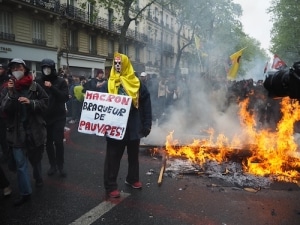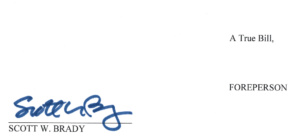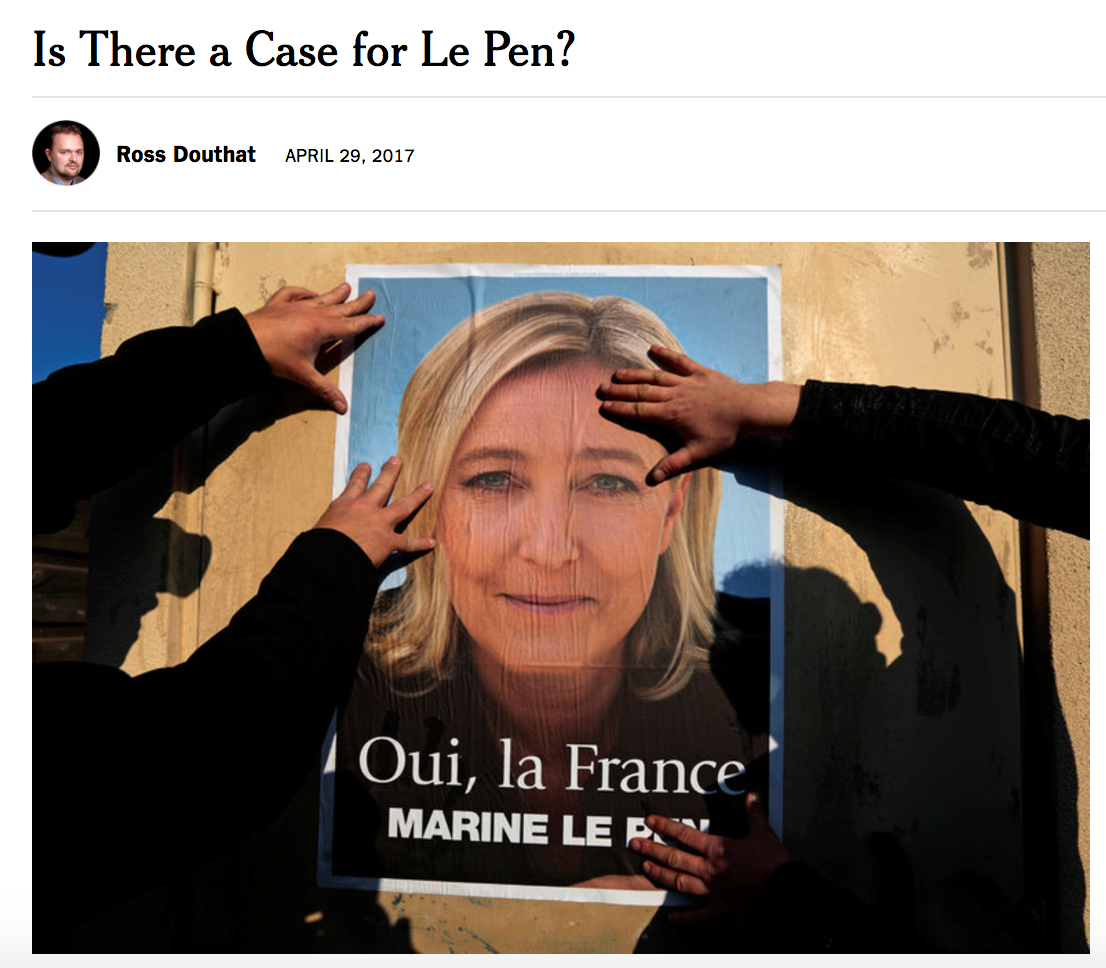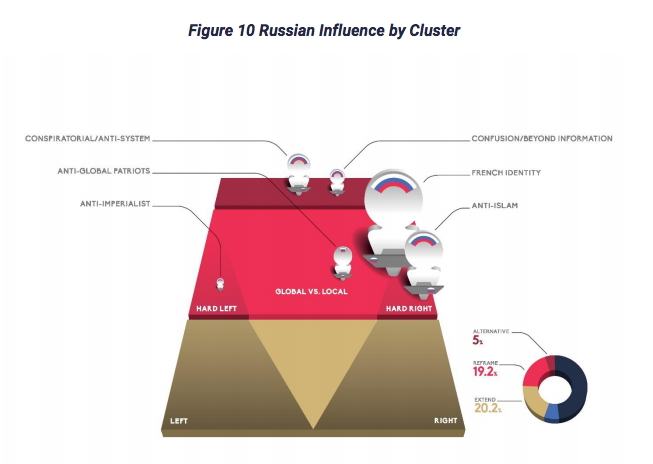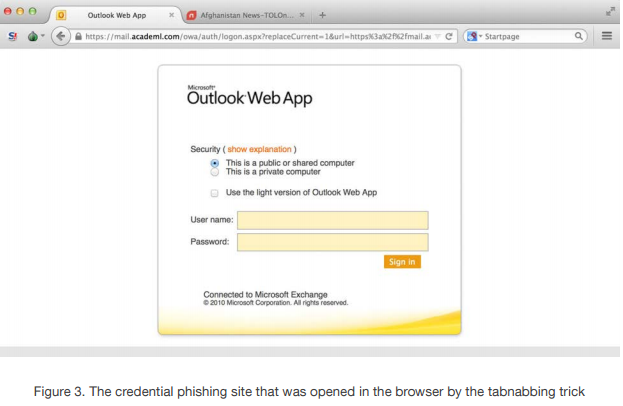The Madness of Macron
From emptywheel: As the United States slow-walks its way towards a potential Trump re-election on November, Emmanuel Macron decided to accelerate the process of marching towards fascism by calling a snap election. Quinn Norton offers this post of how insanely stupid the decision was.
France, EU Elections, and The Rise of The Far Right in Europe
Ah… Europe, the old world. It’s the home of castles, wines, fairy tales, and ridiculous politics.
The first thing to realize is that the EU is structured like a kind of parliamentarian democracy turducken. Each of the countries in the block have their own constitutions, some presidential to various degrees, but most with parliamentary systems. However, they all send representatives and leaders to the European Union level, which is sometimes more power than member states, but usually less. The EU can tell its member states to do things, but then leaders like Hungary’s Orban can shoot back with the proverbial “You and whose army?” and just go on wrecking Hungarian democracy, kissing up to Putin, and trying to kill his gays.
Europe is notoriously old, but Europe as a political entity is so young as to be still forming in some ways, and so Europeans aren’t used to caring about it. The pattern of voter care is reversed from the United States. People vote like they mean it in their own local contexts, but when it comes to the federal EU level, fewer people show up and they trash vote more. They vote as if it doesn’t matter, because many of them don’t think it does. As a result, voting at the EU level has attracted more political extremes at times than the more well-funded and attention grabbing local national elections do.
Still, EU elections can be, and often are, bellwethers, and they rightfully worry national leaders and parties. After the recent EU elections, the most worried leader was France’s Macron, whose party lost these European elections to Rassemblement National, or National Rally. RN won 30 seats, about a third of what was up for grabs. A third may not sound great to someone used to a two party system, but the next on the list was 13 seats. They wiped the floor with every other party, including Macron’s Renaissance party. It was not a good look for anyone who doesn’t like literal fascism, Macron included.
So Emmanuel Macron, president of a whole-ass country, threw a temper tantrum and tossed out the entire government, dismissed his parliament and declared there would be elections three weeks later. Yes, that’s a thing the French president can do. If you’re thinking that’s not a great constitutional power for a president to have, you’re right! But if you’re also in the country that has the Electoral College and the filibuster, you might not be in a position to judge too harshly.
Voting in France is a two round run-off system in most cases. Many candidates run in the first round on a Sunday, and are narrowed to (almost always) two options in the second round of voting, which always comes the Sunday a week later. That first Sunday vote is four days from now.
There’s no direct vote for the Prime Minister in the French system, the French electorate vote for local candidates with specific party affiliations. The Prime Minister is usually chosen by the majority party in Parliament, and the President, who is ideally of the same party, does the official appointing them bit. (Presidential elections are separate, and in most cases occur several weeks apart from legislative elections.)
When everything is going to shit, there’s no obvious majority and no clear winners, the president can end up “co-habiting” with a Prime Minister he doesn’t like, or more importantly, share a party affiliation with. This situation is broadly similar to when the President of the United States doesn’t have either the House or Senate on his side. Getting shit done can be almost impossible. (However the government can’t just shut down, that’s a stupidity unique to the good ol’ US of A.)
Then there’s the people he’s most likely to be “co-habiting” with,by all accounts: France’s most popular party right now, the Rassemblement National.
The National Rally is France’s far right party, started by Jean-Marie Le Pen in 1972 as The National Front as extreme right wing. It was the real deal, too — not just anti-immigration, Le Pen ended up in legal trouble for Holocaust denial, was anti-Europe, and openly racist. He also probably did war crimes in Algeria. He was eventually ousted by his own daughter, Marine Le Pen, who leads the party to this day. She is a much more palatable version of her dad, and more willing to soften her tone and react to the political environment. She keeps a weather eye on France and Europe in general. Marine Le Pen eased the RN’s anti-Europe position after Brexit, and jettisoned any public criticism of Jewish people. In fact, she said Israel “must be permitted to eradicate Hamas” because someone needs to be getting killed to make the RN happy, and probably someone brown. The Le Pens, just a charming family all around.
The official president of the National Rally is political fetus Jordan Bardella, a good-looking 28 year old who hasn’t been alive long enough to have pissed anyone off, and dated within the Le Pen clan. He is apparently comfortable enough living with Marine Le Pen’s hand up his ass, working him like a ventriloquist’s dummy. He can speak in complete sentences, and manage to not sound like Daddy Le Pen, even when he’s making the same points about North Africans. Nobody else in French political life is ever supposed to get close to the RN, and even have a term for this policy – it is the Cordon Sanitaire (sanitary cordon) of French political life.
This political crisis, like all political crises is a creature of the national legal regime. France is in its 5th republic, which was established by Charles de Gaulle in 1958, well after, but in response to, WW2. Make no mistake; de Gaulle was almost as authoritarian as the people he fought. He wanted to be a king, or at least have some French king-style powers — and those powers persisted into the Fifth French Republic. France has been dealing with a stupid array of presidential powers ever since. There was nothing stopping Macron from throwing the country into complete turmoil because he didn’t like the European election results. (Fun fact, if he doesn’t like the result of these upcoming elections, he can do it all again a year later! Stupid but true!)
Macron hasn’t been popular for years, and it often feels like that’s why he got into the game, so it’s not surprising that he’s acting like a angry, tired toddler. It is, however, inconvenient and disruptive to have one of the more powerful countries in Europe, with its fingerprints all over the world, existing in a political temper tantrum. Europe is worried, the international community confused, and France itself is losing its shit.
No one knows what will happen in 4 days. It’s so bad that the left wing seems to have gotten its shit together and built a coalition almost overnight, something the French Left have seemed incapable of in recent years. La France Insoumise, or France Unbowed in English, has managed to slide into second place despite the fact that they’re known mostly for infighting and running the same terrible geriatric candidate no one wants for more than a decade. (That candidate, Melenchon, has even stepped back for this election. I assume someone is holding his tiny dog hostage.)

BFMTV Screenshot The doors of the (French) Republicans’ headquarters after the party head locked himself in.
Les Republicans, the party that both figuratively and literally maps to the Republicans in the US has fallen into total chaos after one of its leaders decided he would join up with the fascist/racist National Rally. He broke the cordon sanitaire the French parties had kept for decades with the National Rally by approaching them for an alliance. Other Republicans didn’t agree, and hadn’t had a clue what he was up to.
The result was hilarious levels of public infighting, including the now fascist-curious Les Republicans leader locking himself in their headquarters and refusing to come out. He ended up getting physically rousted out by others in his party after they found another key to the building, all of which was televised live on French TV. Then he went to a judge to get put back in charge of his party, because Les Republicans is a group of lawmakers so bad at their job they didn’t notice their own party bylaws wouldn’t let them depose a leader that was cozying up to the fascist Right.
It’s a total clown car of French politics, but despite all the outrages coming from parliamentarians, it’s still Macron’s clown car, and he’s still driving it off a cliff.
The Hollow King
Macron always fashioned himself as a kind of republican king of France. I suspect he was tempted by the job of president in the first place by the position being similar to America’s imperial presidency, which undoubtedly influenced de Gaulle’s 5th Republic.
In this way, Macron imagines he is walking in the footsteps of de Gaulle, but without anything near de Gaulle’s political competence. Yes, Macron has a lot of powers. Like the American president he’s pretty untouchable on international policy and relations. This, again, is the classic de Gaulle borrowing from the Americans, with a few cleaned up legal principles. For instance, American presidents often have a terrible time trying to get treaties ratified back home. They go make promises, like Wilson did at the end of World War One when he tried to start the League of Nations (a precursor to the UN). But then they can’t get their own Senators to keep the promises. De Gaulle made sure that’s a lot easier in the 5th Republic than the US Constitution. The president can just ratify treaties himself. But Macron can be hog-tied on domestic policy if he doesn’t have parliament on his side.
And boy, does he ever not have the French Parliament on his side.
When he was still a new shiny good-looking boy in 2017, Macron claimed the mantle of mature centrist. Then he immediately ruined it by trying to slyly claim the the French crown. Yes, that one — the one that got so many heads chopped off. He said that “In French politics, this absence is… a King, a King whom, fundamentally, I don’t think the French people wanted dead.” Despite them being rather famously murdery toward monarchs, Macron seemed to see the French Revolutions more like a series of very violent toddler melt downs than political moments that changed both France and the world. He went on: “the Revolution dug a deep emotional abyss… French democracy does not manage to fill this void.”

A common sight at Parisian protests, this lovely painting portrays Macron as Louis the 16th, head as yet attached.
If this 18th century king-shaped void does somehow exist in the French collective consciousness, he certainly didn’t manage to fill it either. But in trying to, he’s driven a whole-ass country into a ditch. France’s finances are a mess, its politics are on fire, and Macron is whining that there might be a civil war, without a hint of self-awareness about who might be responsible for crashing the country. He is still waiting, petulant and scolding, to be coronated for his wisdom, while his beloved Center falls apart. He did a terrible job, and feels sorry for himself because his terrible decisions have had real consequences.
Macron is disappointed in France for not being inert. For being a country and a people who have desires, opinions, and conflicts that go beyond neoliberal financial stability.
He is, and has remained, a true centrist, through and through.
By their own definitions, centrists are a funny lot. Because they define themselves as being in the middle, their philosophy is ruled by everyone else. To be a loyal centrist means believing things only relative to what others believe, believing in nothing at all, because that could anchor you closer to one side or the other. It’s a kind of palatable political nihilism, the most sociopathic of political positions. There’s no theory or action of centrism; it seeks to be inert. Its meaning is defined by all of those around it, triangulating to be between principles, but never in danger of having any principles. Centrists like to imagine they are grown ups, when in fact they are hollow men, heads filled with straw. Macron could perhaps be the king of centrists, saying anything and sounding like nothing more than rats’ feet over broken glass.
So, what happens to France? And consequently, the rest of Europe as well?
I suspect the rightward turn will continue for two reasons: first, people get conservative when they’re scared, and the world is very scary right now. The other reason is generational. Most of the kids today are the first generation since the 20th century wars who have no one in their lives that lived under authoritarian rule, or experienced fascism first hand.
For Europe’s recent generations, (with the exception of Spain) Nazis are abstractions, fascism is a theory. Most didn’t grow up with relatives who fled or fought in wars. Fascism just looks like order and safety and power, an attractive alternative to the chaos and uncertainty of climate change and wars. Fascism promises someone will take care of you. As long as you don’t challenge the order of things, no one will challenge you. Difficult people will disappear, what you want will be given to you. You can watch all the football you like, 24 hours a day.
When things go wrong, there will always be someone else, not you, to blame. In a world of floods and fires and wars and mass migration, fascism looks like a solution — a little freedom (and usually someone else’s freedom at that) for a lot of security. If you’ve never lived under authoritarians, or known anyone who did, the pitch can sound pretty good.
The French Right offer security and homogeneity to the French people. The Left promise diversity, freedom, and a lot of work. Macron has nothing to offer his people. And so, disappointed in the people he has failed, he’s trashing France.
Whatever the election results, France is in trouble. Whither go the fates of France and Germany, much of the EU will likely follow.


